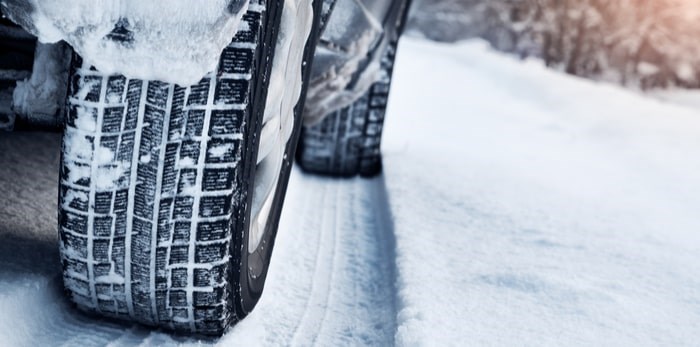 Photo: Winter tires / Shutterstock
Photo: Winter tires / Shutterstock
A new BCAA Winter Driving Survey shows that some British Columbians are nervous about driving on ice and snow this year.
What the survey also shows, however, is that this fear isn't compelling locals to prepare their vehicles for driving in winter conditions.
Conducted by Insights West, the BCAA survey reveals that, "43% of drivers admit to being nervous behind the wheel when bad weather hit," but that 32 per cent take still have a 'wait and see' approach to preparing their vehicles for icy conditions. Further, 21% of respondents said that they'd wait until the last minute or have no plans to prepare their vehicles for winter at all.
The survey finds that drivers in less snowy areas of the province, such as Metro Vancouver and Vancouver Island, are the least prepared. With this in mind, BCAA Automotive Manager Josh Smythe says that B.C. drivers should be prepared for winter conditions, regardless of where they live.
"Chances are, no matter where you are in the province, at some point you're going to hit bad weather," says Smythe. He adds that it's not just snow; but darkness, fog, heavy rain and ice that can all lead to suddenly treacherous driving situations which can go very badly for unprepared drivers.
BCAA's Roadside Assistance can be 40-60% higher across the province when harsh weather hits. And, in Metro Vancouver, call volumes typically double.
"There are newer weather patterns to consider, including windstorms, which some of B.C. has already experienced this season," notes Smythe.
According to the survey, 66% of respondents are being "more vigilant about getting their vehicles serviced for the winter due to "strange and unpredictable weather." Nevertheless, 71% of respondents rated B.C. motorists as "poor" winter drivers, while a whopping 49% would go so far as to call them the worst drivers in Canada.
BCAA's Josh Smythe offers the following tips for winter prep and driving:
1. Prepare your car to perform in winter so you can drive more safely.
- Get a complete vehicle check-up and install winter tires before cold weather sets in. Sooner is better so you don't get caught out. For most highways in B.C., the law requires winter tires as of October 1.
- Carry a winter driving emergency kit and chains in your car.
2. Adjust your driving to match the weather conditions.
- Before you drive: check road and weather conditions, clear snow and ice from windows and lights, defog all windows.
- Route plan to avoid trickier areas such as hills or narrow unplowed streets.
- As you drive: slow down, leave more room between you and the car ahead and use turn signals well in advance.
3. Put safety first.
- Be honest about your driving skills and comfort levels—don't drive in conditions when you don't have the skills or if you're nervous.
- Always have a plan b. Avoid the temptation to drive when you shouldn't by planning other transport options.
- Shovel your driveway and consider how accessible your car is when you park, so roadside assistance can reach you if necessary.
- Carry emergency items in your car, including: highly visible winter outerwear, safety cones, battery jumper cables, a shovel, windshield scraper and brush, flashlight and batteries, warm clothes and boots, gloves, blanket, supply of non-perishable food and water, spare container of winter-grade washer fluid.


